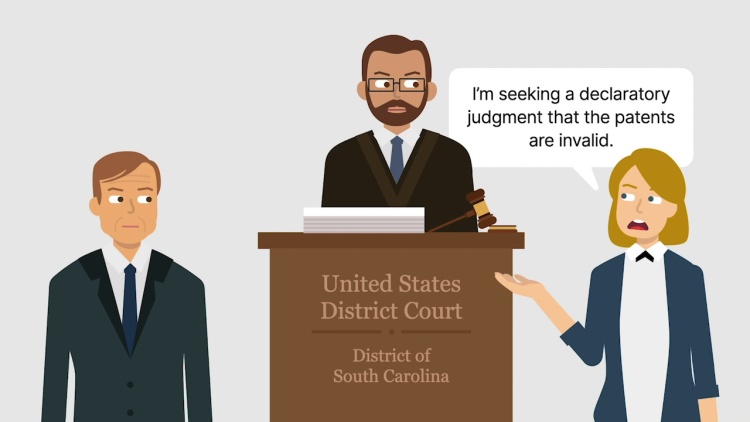Cardinal Chemical Co. v. Morton International, Inc.
United States Supreme Court
508 U.S. 83 (1993)

- Written by Josh Lee, JD
Facts
Morton International, Inc. (Morton) (plaintiff) owned two patents on chemical compounds. Morton sued Cardinal Chemical Co. (Cardinal) (defendant) and its affiliates in federal court in South Carolina for infringing on those patents. Cardinal denied infringing on the patents and filed a counterclaim for a declaratory judgment that the patents were invalid. Prior to trial, Morton filed two other lawsuits, one in Louisiana and one in Delaware, against other alleged infringers of the same patents. Both of those defendants also filed counterclaims for declaratory judgments on the validity of the patents. The Louisiana case was the first to be tried and resulted in a judgment for the defendant finding no infringement and declaring the patents invalid. On appeal, the United States Court of Appeals for the Federal Circuit affirmed the finding of no infringement but vacated the judgment of invalidity without deciding the merits. In this case, the South Carolina trial court also found no infringement and declared the patents to be invalid. Again, on appeal, the United States Court of Appeals for the Federal Circuit affirmed the finding of no infringement and vacated the declaratory judgment. Cardinal then petitioned the United States Supreme Court for review.
Rule of Law
Issue
Holding and Reasoning (Stevens, J.)
What to do next…
Here's why 911,000 law students have relied on our case briefs:
- Written by law professors and practitioners, not other law students. 47,100 briefs, keyed to 997 casebooks. Top-notch customer support.
- The right amount of information, includes the facts, issues, rule of law, holding and reasoning, and any concurrences and dissents.
- Access in your classes, works on your mobile and tablet. Massive library of related video lessons and high quality multiple-choice questions.
- Easy to use, uniform format for every case brief. Written in plain English, not in legalese. Our briefs summarize and simplify; they don’t just repeat the court’s language.





